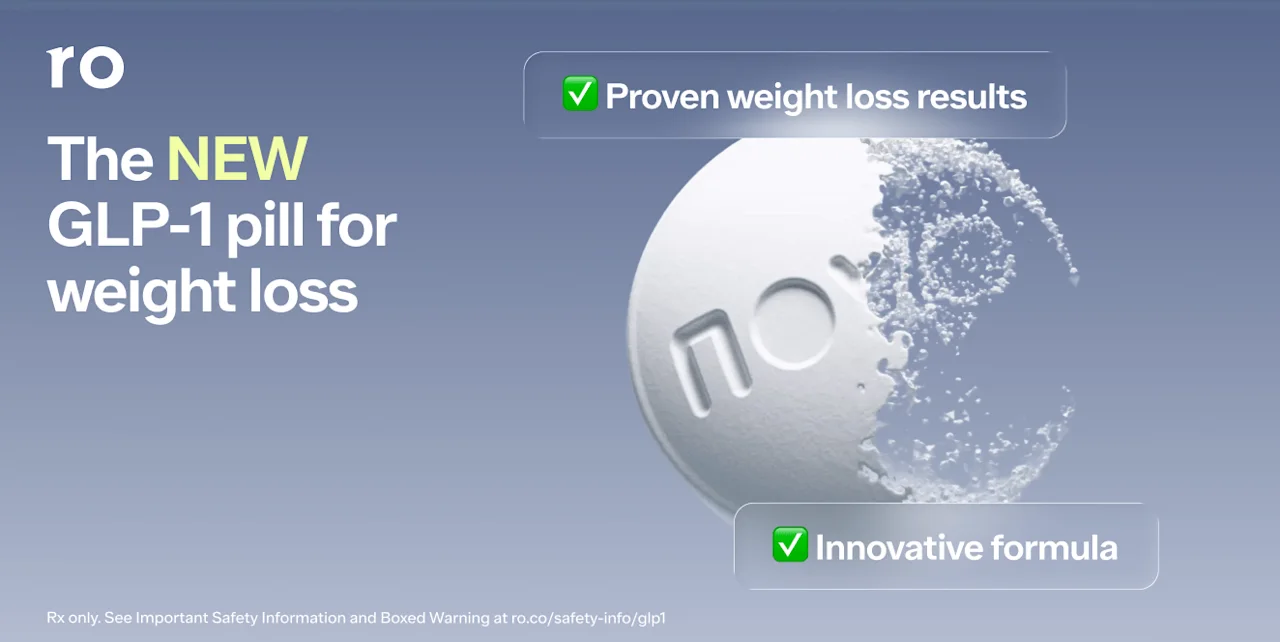Key takeaways
Zepbound works best when combined with healthy lifestyle changes, such as a nutritious diet, regular exercise, and stress management.
If you’re not losing weight on Zepbound, common reasons may include a too-low dosage, poor diet, lack of physical activity, and underlying health conditions.
If you're not seeing results, your healthcare provider can help adjust your treatment plan or explore other medication options.
Here's what we'll cover
Key takeaways
Zepbound works best when combined with healthy lifestyle changes, such as a nutritious diet, regular exercise, and stress management.
If you’re not losing weight on Zepbound, common reasons may include a too-low dosage, poor diet, lack of physical activity, and underlying health conditions.
If you're not seeing results, your healthcare provider can help adjust your treatment plan or explore other medication options.
Zepbound (tirzepatide) is one of the most effective weight loss medications available today. We know that from the research and the real-world reviews from social media and celebrity success stories.
But what if you’re not losing weight on Zepbound? Are you doing something wrong? Why isn’t it working? It is normal to wonder why you’re not losing weight when you start on Zepbound. Weight loss results can look different from person to person, but there may be a few factors at play explaining why Zepbound’s not working for you.
Read on as we explore what could be behind your slower weight loss on Zepbound, and offer guidance for how to speed things up.
Why am I not losing weight on Zepbound?
To find out why you’re not losing weight on Zepbound, we talked to two experts in obesity medicine who regularly treat patients with Zepbound:
Daniel A. Nadeau, MD, a board-certified physician in Endocrinology, Diabetes, and Nutrition.
Pooja Gidwani, MD, a board-certified physician in internal medicine and obesity medicine.
They shared with us the top reasons their clients may run into issues losing weight on Zepbound. Spoiler alert: Many of these factors are in your control, and once you identify why Zepbound’s not working for you, you can take action to start losing weight faster.
1. You haven’t made enough changes to your diet
Zepbound works best when you combine it with lifestyle changes, including diet and exercise. Both Drs. Nadeau and Gidwani said that when people start Zepbound without making significant changes to their diet, the pounds tend to melt away much more slowly — or in some cases, not at all.
For example, some people have defined ideas of what they eat for each meal, Dr. Nadeau says, and they don’t change that when they start Zepbound. “Breakfast is a heavy breakfast with bacon and eggs and buttery toast. Lunch is another high-fat, high-calorie meal, and dinner is the same thing. They start the medication and expect the medication to do everything, while they continue eating exactly the same number of calories as before. Some people may not lose a pound with that.”
Dr. Gidwani says some people may make some changes, but the changes aren’t significant enough. “Many patients decrease portion size but don’t improve what they’re eating. I see people eating smaller amounts of the same ultra-processed foods and wondering why the scale’s not budging.”
If this sounds familiar, here are alternative ideas:
Limit your intake of high-fat, high-calorie foods (these foods also tend to worsen the side effects of Zepbound)
Reduce your overall caloric intake, paying greater attention to making your meals more nutritious. Consider healthy carbs, protein, and fiber from whole grains, plant-based foods, and lean meats like chicken
2. You haven’t started exercising
While diet arguably plays the most significant role in weight loss, drugs like Zepbound are recommended to be used in combination with increased physical activity as well. That’s because exercise boosts overall health, improves the quality of your weight loss (by reducing the amount lost from muscle vs. fat), and has a positive effect on weight loss maintenance. There’s also evidence that exercise has an appetite-suppressing effect.
You can reap the benefits of exercise from aerobic, resistance, and flexibility-based workouts. For people taking GLP-1s like Zepbound, however, it’s especially important to take up resistance training, Dr. Gidwani stresses. “If patients aren’t engaging in resistance-based exercise, they risk losing muscle mass, and the body will fight fat loss harder to protect itself.”
Dr. Nadeau recommends that patients focus on a different muscle group each day, perform enough reps until they reach the point of exhaustion, and gradually work their way up from there.
3. You need a higher dose of Zepbound
Zepbound comes in six dosage strengths ranging from 2.5 milligrams (mg) to 15 mg. Healthcare providers typically prescribe the lowest 2.5-mg dosage and gradually increase from there, based on a person’s response to the medication and tolerance for side effects.
“Staying on too low of a dose is one of the most common reasons weight loss slows — or stalls entirely on Zepbound,” Dr. Gidwani says. “If the medication isn’t offering adequate appetite suppression, patients tend to continue overeating or grazing — even if calories are reduced overall.”
If you’re not losing weight on Zepbound and you’ve been taking the same dosage for a while, it may be worth contacting your healthcare provider to see if a dosage increase is in order.
4. You’ve run into a weight loss plateau
If you’ve been taking Zepbound for a while and losing weight pretty consistently, but now it seems to have stopped working, it’s possible you’ve hit a weight loss plateau. Plateaus are a normal part of any weight loss journey, even with Zepbound, Dr. Gidwani says. They can occur when your metabolism catches up to your new level of calories and physical activity, and reacts by slowing down to maintain your “set point.”
“If appetite isn’t well-controlled at a lower dose, increasing the medication gradually until there’s meaningful satiety is important,” Dr. Gidwani says. “I’ve seen patients stall at 5 mg, then lose steadily after titrating to 10 or 15 mg.”
5. You have other health conditions that hinder weight loss
Various health conditions can make it more challenging to lose weight quickly, Dr. Gidwani says. This includes many conditions that tend to overlap with obesity and overweight, such as hypothyroidism, polycystic ovarian syndrome (PCOS), or severe insulin resistance.
For example, in a study of people with type 2 diabetes, those taking the 10-mg and 15-mg dosage strengths of Zepbound lost 12.8%–14.7% of their body weight in 72 weeks (about a year and a half). In a separate study of people with obesity, but not diabetes, people lost 19.5%–20.9% of their body weight on the same dosage strengths in the same timeframe.
If you have underlying health conditions, that could explain why you’re not losing weight as quickly as you expected on Zepbound — but it’s smart to check in with your healthcare provider to be sure.
6. You’re too stressed out
While diet and exercise may be the most obvious lifestyle changes to make when you’re losing weight, other lifestyle factors can also help (or hinder) weight loss.
Poor sleep and unmanaged stress can both explain slower weight loss on Zepbound, Dr. Gidwani says. “Both increase cortisol and impair insulin sensitivity, which blunts the effects of tirzepatide [the active ingredient in Zepbound].” Studies have shown that stress contributes to weight gain through several factors:
It messes with your brain and ability to self-regulate, so it’s tougher to stick to your diet and weight loss goals
It increases the production of appetite hormones, so you feel hungrier
It makes you more likely to overeat, especially foods that are high in fat, sugar, and overall calories
“Emotional eating, binge-restriction cycles, and resistance to meal structure can persist even with reduced hunger on Zepbound,” Dr. Gidwani says. “Medications don’t override habits – they support new ones.”
If you’ve been living with a lot of stress, consider finding ways to manage your stress, whether through meditation, therapy, exercise, or progressive muscle relaxation. When people reduce their stress, studies show, they tend to lose more weight. The same goes for better sleep. In a yearlong study of people in a weight loss program, those who got better sleep (7–9 hours per night) also lost more weight and body fat.
7. You may need a different medication
If nothing you’ve read so far feels familiar, and you’re not losing weight on Zepbound, it’s possible that you may need a different weight loss medication. In clinical studies of Zepbound, about 9% of people lost less than 5% of their body weight after 72 weeks, even on the highest dosage strengths.
Sometimes, people simply do not respond to a medication, but another option will work better for them. This is why it’s a good idea to stay in touch with your healthcare provider throughout your Zepbound weight loss journey.
If you’ve been taking the medication for a few months and you’re not losing weight on Zepbound, it might be time to switch to another option, such as Wegovy (semaglutide) or Saxenda (liraglutide). These are both injectable weight loss medications, like Zepbound. Wegovy is injected once a week, similar to Zepbound, while Saxenda is injected daily. In just over a year, people taking Saxenda lost 8% of their body weight in clinical trials. People taking Wegovy lose about 10 % of their starting weight in the first five months and roughly 15–17% after 68 weeks of continued treatment.
How to maximize weight loss on tirzepatide
Everyone’s weight loss journey is as individual as they are, even on Zepbound. In his practice, Dr. Nadeau says his patients typically lose 10%–15% of their body weight. “If you weigh 200 pounds, a loss of 30 pounds is routine for patients. Some people are more sensitive to Zepbound, but it also has to do with the lifestyle changes you’re making at the same time.”
If you want to make the most of your journey on Zepbound, follow these tips for maximizing weight loss.
1. Change your diet
If you haven’t made significant changes to your diet, now’s the time to start. “I see Zepbound as an opportunity for people to make a transition to a healthier diet,” Dr. Nadeau says. “This is a really good time to give up processed food, stop eating desserts, and stop eating fried foods. It will be a lot easier than it was in the past.”
If you need some direction, Dr. Nadeau recommends berries with breakfast, salads for lunch, and greens with dinner. “A low-fat approach to eating is my approach to success,” he says.
“You don’t need an animal on your plate every meal,” Dr. Nadeau says, saying that a plant-based diet can work remarkably well for people losing weight on Zepbound. Examples of plant-based diets include Mediterranean, vegetarian, and vegan diets that focus on getting fiber from fruits, veggies, beans, and grains; protein from lentils, nuts, and soy; and healthy fats from avocado, seeds, and fatty fish (in the case of the Mediterranean diet).
2. Eat more protein
If you want to make just one major change to your diet to support weight loss, start by eating more protein. Studies show that people who increase their protein intake while losing weight tend to report increased satiety, or fullness, during the day, which makes it easier to avoid overeating.
Dr. Gidwani recommends including at least 20–30 grams of protein per meal. Good sources of protein include:
Beans
Peas
Lentils
Nuts
Seeds
Soy
Tofu
Seafood
Lean meat
Lean poultry
Low-fat dairy
Eggs
Protein powder
If you’re switching to a plant-based diet while taking Zepbound, Dr. Nadeau says, “You don’t need to overdo it on protein from meat. You can eat a reasonable amount of protein through a plant-based diet.”
3. Start the day right
Starting your morning with a healthy, colorful breakfast can set you up for more weight loss success, Dr. Nadeau says. “My ideal way to start the day is with a blueberry smoothie made with wild Maine blueberries, cashew milk, banana, spinach, chia seed, cocoa beans, and cinnamon.”
This colorful breakfast packs in plenty of protein (from the cashew milk and chia seeds) and fiber, setting you up to feel full and satisfied for a long time after you eat. The anthocyanins from the blueberries help protect your brain, too, Dr. Nadeau says.
Not only does fiber boost satiety, but it’s been shown to be one of the most effective macronutrients when it comes to weight loss. What’s more, people who eat more fiber tend to do a better job sticking to their macro goals when losing weight, according to one study of adults in a weight loss program.
4. Focus on resistance training
Dr. Nadeau notes that any weight-loss program naturally leads to a small amount of muscle loss, but it’s seldom significant. To limit that loss, he routinely pairs Zepbound with a resistance-training plan so patients can preserve as much muscle as possible.
If lifting weights isn’t your thing, there are plenty of other ways you can get in a resistance workout, from yoga and pilates to doing squats at home. And there’s more good news: Dr. Nadeau says it doesn’t take that much to maintain a healthy level of muscle mass. “If you can hit every major muscle group once a week—say one day is back, one day shoulders, one day legs—and work yourself to exhaustion within 20 repetitions until you feel like you can’t do anymore, that’s an approach to make it your routine.”
5. Drink more water
This is one of those scenarios where it sounds like it’s too good to be true, but it actually is true. Research shows that increasing your water consumption can support weight loss. While the quality of the studies varies, drinking more water may lead to an average weight loss of 1–19 pounds. In particular, the most effective strategies include:
Drinking more water overall on a daily basis
Replacing caloric beverages (such as fruit juice, soda, or alcohol) with water
Drinking water before a meal
Plus, drinking more water (ideally in slow sips throughout the day) can help you manage some of the gastrointestinal side effects of Zepbound, including nausea, vomiting, and diarrhea.
6. Adopt a positive mindset
Ever hear the saying, “Your attitude determines your altitude?” To keep you motivated through your weight loss journey, Dr. Nadeau recommends adopting a positive mindset. “If people had a time in the past where they were successful with weight loss, I encourage them to try to create the mindset they had back then. A lot of people have given up on themselves, but they can remember a time when they were focused, moving forward with a healthy diet and exercise, and being successful at weight loss and feeling good about themselves.”
Tracking your progress and celebrating your successes can also help you stay positive, Dr. Gidwani says, who encourages her patients to track their body measurements, measurements, strength gains, energy levels, and digestion, not just the number on the scale. “Reassess every four to six weeks, not every four to six days. Fat loss isn’t linear.” As you look back in these larger chunks of time, you can really see how far you’ve come.
7. Stay in touch with your healthcare provider
Stay in regular contact with your healthcare provider and update them on the weight you’re losing, the side effects you’re experiencing, and the roadblocks you’re encountering.
A healthy rate of weight loss on Zepbound is about a pound per week, Dr. Nadeau says. “But if you’re tolerating it well and experiencing minimal weight loss — say, you’ve been on Zepbound for eight weeks, but you've only lost two or three pounds — I’d go ahead and move them up to the next dosage. I have a lot of people send me notes that say I’m doing well, but my weight has plateaued. For those patients, I’ll push them forward to the next dosage. “
In the first few months of taking Zepbound, your healthcare provider can also assess whether Zepbound is working well for you, or if an alternative medication would be a better fit.
How long does it take to lose weight on tirzepatide?
Zepbound starts working soon after you take it, reaching a steady state in your bloodstream within four weeks. In studies, people have lost nearly six pounds within the first five weeks—a rate that’s faster than one pound per week. After one year, a study of Chinese adults have lost between 13.6% to 17.5% on the 10-mg and 15-mg dosage strengths of Zepbound. At 72 weeks (a little under a year and a half), those percentages increase to 19.5% and 20.9%.
How much weight can you lose on Zepbound?
“Weight loss on Zepbound varies dramatically depending on starting body composition and goals,” Dr. Gidwani says. “Someone with a higher body fat percentage may lose 20–30% of their starting weight, while someone aiming to improve body composition might lose just 10–15 pounds but see a major drop in visceral fat and metabolic risk.” Here’s a look at some of the clinical studies showing how much weight you can lose on Zepbound:
In a 72-week study, people lost an average of 15%–21% of their starting body weight, with those taking higher dosage strengths losing more weight.
In the above 52-week study, people taking Zepbound lost between 13.6% and 17.5% of their body weight. Those taking a placebo, by comparison, lost only 2.3%.
In a study comparing tirzepatide vs. semaglutide (the active ingredients in Zepbound and Ozempic, respectively), people taking Zepbound lost significantly more body weight and body fat—even though both medications reduced appetite and caloric intake to a similar degree.
Bottom line
Zepbound is one of the most effective weight loss medications available today. If you’re not losing weight on Zepbound, it can be frustrating. The good news is that there’s usually a reason — and most of the time, it’s something you can change. Here are five things to keep in mind:
Check your diet. If you haven’t made meaningful changes to what you eat, or are still eating high-fat, ultra-processed foods, you may not lose weight as quickly or as much.
Start exercising. A mix of resistance training and aerobic activity can preserve muscle, burn more calories, and help you break through weight loss plateaus.
Ask your healthcare provider about your dose. Many people need to increase their Zepbound dose over time. If your current dose isn’t curbing your appetite, talk to your provider.
Recognize underlying health conditions. Conditions like PCOS and diabetes can make weight loss slower, even with Zepbound.
Take care of yourself. High stress and poor sleep can affect your wellbeing and appetite, which may make it harder to lose weight on Zepbound.
Frequently asked questions (FAQs)
Is it possible not to lose weight on Zepbound?
Yes, it is possible to not lose weight on Zepbound, although it is less common. In a clinical trial, about 9% of people did not lose at least 5% of their body weight (a target goal for the study) over the course of a year and a half, even on the highest dosage strength.
Why does Zepbound not work for me?
If you feel like Zepbound’s not working, there could be a number of possible explanations. Some people may need to improve their diet and exercise regimen, while others have underlying health conditions that can slow weight loss, even on Zepbound. It’s also possible that you’ve hit a weight loss plateau and need to take a higher dosage strength. If you’re not losing weight on Zepbound, check in with your healthcare provider. They can help you figure out why Zepbound’s not working and offer next steps.
Why is my weight loss so slow on Zepbound?
Weight loss can move more slowly—or more quickly—on Zepbound, depending on your starting body weight, underlying health conditions, dosage strength, and commitment to lifestyle changes. If you’re not losing weight on Zepbound as quickly as you expected to, contact your healthcare provider. They can help you understand why and recommend what to do next.
How can I maximize my weight loss on Zepbound?
To maximize your weight loss on Zepbound, take Zepbound consistently and make lifestyle changes like improving your diet and increasing your physical activity. Reducing your overall caloric intake, while increasing your protein and fiber, can also help boost feelings of fullness throughout the day. Stay in regular contact with your healthcare provider so they can increase your dosage if your weight loss starts to slow down.
DISCLAIMER
If you have any medical questions or concerns, please talk to your healthcare provider. The articles on Health Guide are underpinned by peer-reviewed research and information drawn from medical societies and governmental agencies. However, they are not a substitute for professional medical advice, diagnosis, or treatment.
Zepbound Important Safety Information: Read more about serious warnings and safety info.
GLP-1 Important Safety Information: Read more about serious warnings and safety info.
References
Almandoz, J. P., Wadden, T. A., Tewksbury, C., et al. (2024). Nutritional considerations with antiobesity medications. Obesity, 32(9), 1613–1631. doi:10.1002/oby.24067. Retrieved from https://onlinelibrary.wiley.com/doi/10.1002/oby.24067
Bracamontes-Castelo, G., Bacardí-Gascón, M., & Jiménez Cruz, A. (2019). Effect of water consumption on weight loss: a systematic review. Efecto del consumo de agua sobre la pérdida de peso: revisión sistemática. Nutricion hospitalaria, 36(6), 1424–1429. doi:10.20960/nh.02746. Retrieved from https://pubmed.ncbi.nlm.nih.gov/31657610/
Cox, C. E. (2017). Role of Physical Activity for Weight Loss and Weight Maintenance. Diabetes Spectrum: A Publication of the American Diabetes Association, 30(3), 157–160. doi:10.2337/ds17-0013. Retrieved from https://www.ncbi.nlm.nih.gov/pmc/articles/PMC5556592/
de Carvalho, K. M. B., Pizato, N., Botelho, P. B., et al. (2020). Dietary protein and appetite sensations in individuals with overweight and obesity: a systematic review. European Journal of Nutrition, 59(6), 2317–2332. doi:10.1007/s00394-020-02321-1. Retrieved from https://pubmed.ncbi.nlm.nih.gov/32648023/
Dorling, J., Broom, D. R., Burns, S. F., et al. (2018). Acute and Chronic Effects of Exercise on Appetite, Energy Intake, and Appetite-Related Hormones: The Modulating Effect of Adiposity, Sex, and Habitual Physical Activity. Nutrients, 10(9), 1140. doi:10.3390/nu10091140. Retrieved from https://pmc.ncbi.nlm.nih.gov/articles/PMC6164815/
Garvey, W. T., Frias, J. P., Jastreboff, A. M., et al. (2023). Tirzepatide once weekly for the treatment of obesity in people with type 2 diabetes (SURMOUNT-2): a double-blind, randomised, multicentre, placebo-controlled, phase 3 trial. Lancet (London, England), 402(10402), 613–626. doi:10.1016/S0140-6736(23)01200-X. Retrieved from https://www.thelancet.com/journals/lancet/article/PIIS0140-6736(23)01200-X/abstract
Gorgojo-Martínez, J. J., Mezquita-Raya, P., Carretero-Gómez, J., et al. (2022). Clinical Recommendations to Manage Gastrointestinal Adverse Events in Patients Treated with Glp-1 Receptor Agonists: A Multidisciplinary Expert Consensus. Journal of Clinical Medicine, 12(1), 145. doi:10.3390/jcm12010145. Retrieved from https://pmc.ncbi.nlm.nih.gov/articles/PMC9821052/
Hamano, S., Sawada, M., Aihara, M., et al. (2024). Ultra-processed foods cause weight gain and increased energy intake associated with reduced chewing frequency: A randomized, open-label, crossover study. Diabetes, Obesity & Metabolism, 26(11), 5431–5443. doi:10.1111/dom.15922. Retrieved from https://pubmed.ncbi.nlm.nih.gov/39267249/
Jastreboff, A. M., Aronne, L. J., Ahmad, N. N., et al. (2022). Tirzepatide once weekly for the treatment of obesity. New England Journal of Medicine, 387(3), 205–216. doi:10.1056/nejmoa2206038. Retrieved from https://www.nejm.org/doi/full/10.1056/NEJMoa2206038
Klen, J., & Dolžan, V. (2022). Glucagon-like Peptide-1 Receptor Agonists in the Management of Type 2 Diabetes Mellitus and Obesity: The Impact of Pharmacological Properties and Genetic Factors. International Journal of Molecular Sciences, 23(7), 3451. doi:10.3390/ijms23073451. Retrieved from https://pmc.ncbi.nlm.nih.gov/articles/PMC8998939/
Kline, C. E., Chasens, E. R., Bizhanova, Z., et al. (2021). The association between sleep health and weight change during a 12-month behavioral weight loss intervention. International Journal of Obesity (2005), 45(3), 639–649. doi:10.1038/s41366-020-00728-8. Retrieved from https://www.ncbi.nlm.nih.gov/pmc/articles/PMC7914147/
McCarthy, D. & Berg, A. (2021). Weight loss strategies and the risk of skeletal muscle mass loss. Nutrients, 13(7), 2473. doi:10.3390/nu13072473. Retrieved from https://www.ncbi.nlm.nih.gov/pmc/articles/PMC8308821/
Miketinas, D. C., Bray, G. A., Beyl, R. A., et al. (2019). Fiber Intake Predicts Weight Loss and Dietary Adherence in Adults Consuming Calorie-Restricted Diets: The POUNDS Lost (Preventing Overweight Using Novel Dietary Strategies) Study. The Journal of Nutrition, 149(10), 1742–1748. doi:10.1093/jn/nxz117. Retrieved from https://pubmed.ncbi.nlm.nih.gov/31174214/
Sarwan, G., Daley, S. F., & Rehman, A. (2024). Management of Weight Loss Plateau. StatPearls. Retrieved from https://www.ncbi.nlm.nih.gov/books/NBK576400/
Tchang, B. G., Aras, M., Kumar, R. B, et al. (2024). Pharmacologic Treatment of Overweight and Obesity in Adults. Endotext [Internet]. Retrieved from https://www.ncbi.nlm.nih.gov/books/NBK279038/
Tomiyama, A. J. (2019). Stress and Obesity. Annual Review of Psychology, 70, 703–718. doi:10.1146/annurev-psych-010418-102936. Retrieved from https://www.annualreviews.org/doi/10.1146/annurev-psych-010418-102936
US Food & Drug Administration (FDA-a). (2025). Highlights of Prescribing Information: Zepbound (tirzepatide) injection for subcutaneous use. Retrieved from https://www.accessdata.fda.gov/drugsatfda_docs/label/2025/217806Orig1s020lbl.pdf
Xenaki, N., Bacopoulou, F., Kokkinos, A., et al. (2018). Impact of a stress management program on weight loss, mental health and lifestyle in adults with obesity: a randomized controlled trial. Journal of Molecular Biochemistry, 7(2), 78–84. Retrieved from https://pubmed.ncbi.nlm.nih.gov/30568922/
Zhao, L., Cheng, Z., Lu, Y., et al. (2024). Tirzepatide for Weight Reduction in Chinese Adults With Obesity: The SURMOUNT-CN Randomized Clinical Trial. JAMA, 332(7), 551–560. doi:10.1001/jama.2024.9217. Retrieved from https://pmc.ncbi.nlm.nih.gov/articles/PMC11337071/
Craig, W. J., Mangels, A. R., Fresán, U., Marsh, K., Miles, F. L., Saunders, A. V., Haddad, E. H., Heskey, C. E., Johnston, P., Larson-Meyer, E., & Orlich, M. (2021). The safe and effective use of plant-based diets with guidelines for health professionals. Nutrients, 13(11), 4144. Retrieved from https://www.mdpi.com/2072-6643/13/11/4144
Aronne, L. J., Horn, D. B., le Roux, C. W., Ho, W., Falcon, B. L., Gomez Valderas, E., Das, S., Lee, C. J., Glass, L. C., Senyucel, C., & Dunn, J. P. (2025, May 11). Tirzepatide as compared with semaglutide for the treatment of obesity. The New England Journal of Medicine. Advance online publication. Retrieved from https://www.nejm.org/doi/10.1056/NEJMoa2416394













